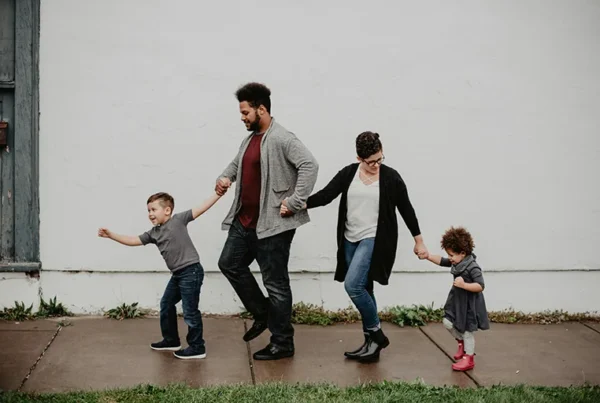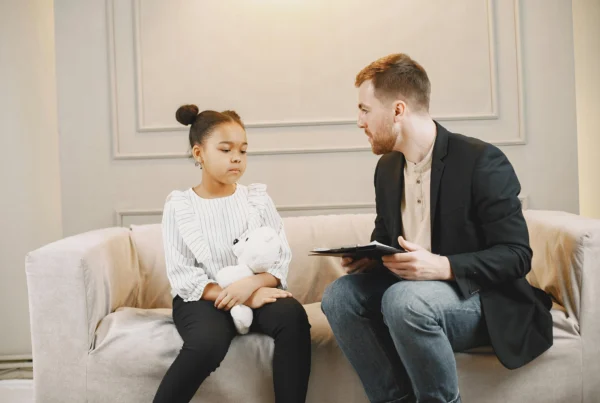Parenting is a journey filled with its fair share of challenges. When divorce becomes part of the equation, those challenges can become even more complex. As the school year begins, divorced parents in Virginia may find themselves facing a unique set of obstacles when it comes to co-parenting their school-age children.
In this article, we’ll explore some important aspects of co-parenting during the school year, common concerns that arise, and valuable tips to help make this transition smoother. For those seeking guidance on divorce and co-parenting matters, remember that Slovensky Law is here to help.
Navigating the Complexity of Co-Parenting after Divorce
Co-parenting, especially during the school year, can be akin to trying to solve a jigsaw puzzle with missing pieces. The demands of school schedules, extracurricular activities, and academic performance can add layers of complexity to an already challenging situation. However, understanding the dynamics of co-parenting during this crucial period can make all the difference in ensuring your child’s well-being.
Important Facts About School-Age Children and Divorce
- Resilience: Children are remarkably resilient, and many can adapt well to changes in their family structure. With the right support and environment, they can thrive even after a divorce.
- Stability Matters: Consistency and stability are vital for children’s emotional well-being, especially during the school year. Maintaining routines can help provide a sense of security. Use a calendar to show parenting time and other activities.
- Adjusting to Parenting Styles: School-age children typically adjust well to different parenting styles. These children can also adapt to having two homes comfortably. Both parents’ homes should be a welcoming space.
- Encourage Activities: Support your child’s involvement in various activities outside the home. Ensure your parenting plan accommodates their participation.
- Involvement in School: Children do better when both parents actively participate in their schooling. As much as possible, both parents should be able to help their child with everything from homework to attending school activities and meetings.
Common Co-Parenting Concerns with School-Age Children
- Scheduling Conflicts: Coordinating school pick-ups, drop-offs, and attendance at school events can be challenging when parents live separately.
- Academic Performance: Monitoring a child’s academic progress and ensuring they complete homework assignments can be more complicated with two households.
- Communication: Effective communication between co-parents is key, but it’s often a struggle, which can negatively impact the child’s experience.
Tips for Co-Parenting Before and During the School Year
- Create a Shared Calendar: Maintain a shared online calendar to keep track of important dates, school events, and custody schedules. This can help avoid misunderstandings and scheduling conflicts.
- Regular Communication: Establish open and respectful communication channels with your co-parent. Discuss your child’s needs, progress, and any concerns promptly.
- Consistency Matters: Try to maintain consistent routines and rules between both households. This can provide stability for your child and reduce stress.
- Stay Involved in School: Attend parent-teacher conferences together whenever possible. If attending separately, share information and updates to ensure both parents are informed about the child’s education.
- Support Homework Completion: Encourage your child to complete homework at both homes. Create a homework-friendly environment in both households and maintain a consistent approach to assignments.
- Field Trips and School Events: Plan for field trips and school events. Coordinate and communicate to ensure both parents are clear on important details such as pickups and dropoffs, locations, contact numbers, and chaperones. Support your child’s engagement in these activities.
- Informing the School: If changing schools or modifying orders, inform the child’s school of co-parenting arrangements. Clear communication with the school is crucial to ensure everyone is on the same page.
- Setting Realistic Expectations: Recognize that co-parenting during the school year can be challenging, but by setting realistic expectations and remembering your priorities – your child’s well-being and education – you can navigate this journey successfully.
- Positive Co-Parenting: Focus on fostering a positive co-parenting relationship, even when faced with challenges. Keep your child’s best interests at the forefront of your decisions.
Agreeing and Communicating Before School Starts
Before the school year begins, there are several crucial things co-parents should agree on and communicate about:
- School Supplies: Determine how you’ll handle the purchase of school supplies and who will be responsible for specific items.
- School Lunches: Coordinate and communicate about school lunches, whether packed or bought. Discuss dietary needs or restrictions, if any. Ensure your child has access to balanced meals during the school day.
- School Transportation: Address your child’s transportation needs. Decide who will be responsible for school drop-offs and pickups, and ensure your child’s safety during the commute.
- Extracurricular Activities: Discuss how you’ll handle your child’s participation in extracurricular activities. Who will be responsible for transportation and associated costs?
- Healthcare and Emergencies: Ensure you both have access to your child’s medical records and discuss how you’ll handle healthcare decisions and emergencies during the school year.
- School Communication: Agree on how you’ll share school-related information and updates, such as report cards, school newsletters, and communication from teachers.
- Parent-Teacher Meetings: Plan how you’ll attend parent-teacher meetings, and decide whether it’s best to attend together or separately.
Co-Parenting Beyond Divorce: Seek Guidance When Needed
Co-parenting during the school year can be challenging, but with patience, communication, and a commitment to your child’s well-being, it’s possible to navigate these complexities successfully. Slovensky Law is here to provide guidance and legal support for divorced parents in Virginia facing co-parenting challenges. By working together and prioritizing your child’s needs, you can give them the stability and support they need to thrive academically and emotionally.
If you’re facing co-parenting challenges during the school year or have questions about divorce and family law matters, don’t hesitate to reach out to Slovensky Law. Our experienced team is ready to assist you in ensuring the best possible outcome for your family.



